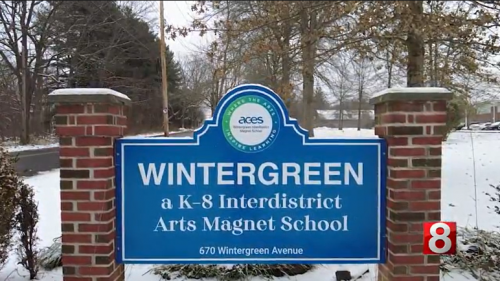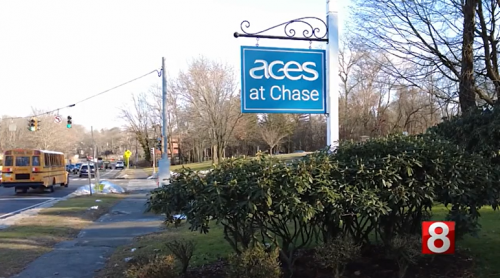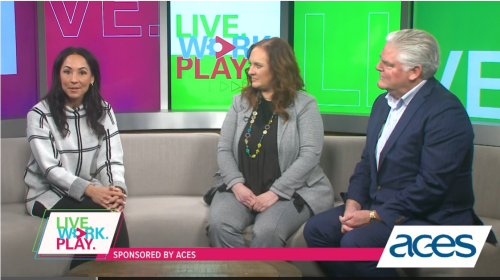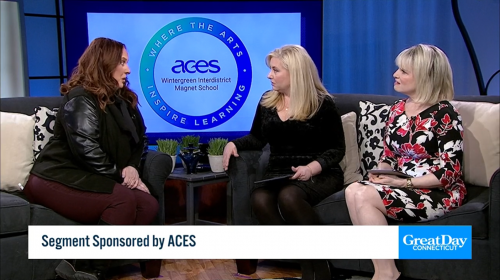-
Our Agency
- About Us
- Calendars
- Contact Us
-
Directions
- ACCESS
- ACES at Chase
- ACES International Preschool and Childcare Center
- ACES Transportation Services
- Center for Autism Spectrum and Developmental Disorders
- Central Office
- Educational Center for the Arts
- Educational Technology
- Little Theatre on Lincoln Street
- Mill Road School
- Network Services
- Staff Development / Administration
- Village School
- Whitney High School North
- Wintergreen Interdistrict Magnet School
- Human Capital Development
- Education Foundation
- News / Press
- Publications
- Request for Proposals
- Employment
- Events & Workshops
-
Schools & Programs
-
Special Education Schools
- Center for Autism Spectrum and Developmental Disorders
- Mead Elementary School
- Mill Road School
- Village School
- Whitney Academy EXPLORE & CREATE
- Whitney High School North
-
Magnet Schools
-
ACES at Chase
- About Us
- ACES at Chase: History & Origins
- Admissions
-
Student and Family Portal
- Breakfast and Lunch Menus
- Cancellations, Delays, and Early Dismissal
- Community Health Center
- Dress Guidelines
- Grading and School Policies
- Health Office
- Principal's Corner
- Quick Links
- School Newspaper: Chase Express
- Student Handbook
- Technology & Digital Citizenship
- Virtual Suggestion Box
- Document Library
- Contact Us
- Back to ACES
- Educational Center for the Arts
- Wintergreen Interdistrict Magnet School
-
ACES at Chase
- Alternative Education
- ACES Early Head Start
- ACES International
- ACES Open Choice
- ACES International Preschool and Childcare Center
- Family and Community Engagement
- Magnet School Parent Choice
- School-Based Services
-
Special Education Schools
-
Services
- ACCESS Adult Vocational Services
- ACES Insurance Collaborative
- ACES UP
- Alternate Routes to Certification
- Autism Programs
- Business Partnership Opportunities
- Clinical Services
- Educational Technology
- Facility Rental
- Fingerprinting
- International Programming
- Marketing and Communications Services
- Professional Learning
- Regional Education Councils
- Regional Special Education Transportation
- Security Services
- Speech and Language Services
- Technology
- Translation Services
- Transportation
- Find
« Back to News List
« Back to News List
4 Things an Arts Education Can do for Students
March 7th, 2018

ACES sponsored content
According to the National Education Association, secondary education in the United States places a high premium on math and science credits but focuses very little on the arts, and the number of art-related classes offered in U.S. classrooms is continuing to decline.
"Deep budget cuts, which haven’t reached their bottom, and the decade-long focus on reading and math have clearly taken their toll on the availability of arts instruction," the NEA said.
Studies have shown that an education that includes some element of art appreciation places students at an advantage socially and intellectually — an advantage that many students are graduating without.
Here are four things you might not have known an arts education can do for students.
It improves student academic performance
One oft-touted benefit of an arts education is improved student academic performance. The question is, how prevalent is this influence and exactly how improved are students who study the arts?
The National Assembly of State Arts Agencies cites a national study of over 25,000 middle school and high school students. In the study found, researchers found that "students with high arts involvement performed better on standardized achievement tests than students with low arts involvement. . . . The high arts-involved students also watched fewer hours of TV, participated in more community service and reported less boredom in school."
Researchers also cited statistics that show a positive correlation between the number of years of art studies and a student's score on the SAT.
"Notably, students who took four years of arts coursework outperformed their peers who had one half-year or less of arts coursework by 58 points on the verbal portion and 38 points on the math portion of the SAT," the National Assembly explains.
It makes students more tolerant and empathetic
Other influences of an arts education might be more subtle, but they are arguably more significant. One study reported by Education Week pointed out that "Exposure to the arts also affects the values of young people, making them more tolerant and empathetic."
The mechanism behind this change in attitude is unclear, but it could be due, in part, to a better understanding of the world and a greater awareness of different people, ideas and places.
It helps improve students' social skills
Another lesser-known benefit of an arts education is its role in developing students' social competencies, especially in at-risk or disadvantaged youth. The National Assembly cited two research studies demonstrating this benefit. The first was of at-risk boys between the age of 8 and 19 who "discovered that learning to play guitar and performing for their peers boosted their confidence and self-esteem."
The second study found that when a group of 60 juvenile offenders and other underprivileged youth "participated in jazz and hip-hop dance classes twice weekly for 10 weeks, they reported significant gains in confidence, tolerance and persistence related to the dance experience."
These studies demonstrate how social improvement can be attained regardless of the type of arts education a student is involved in.
It prompts increased civic involvement
Students who were heavily involved in the arts in school also show increased involvement in voting, volunteering and civic engagement. The National Endowment for the Arts pointed out that high arts, low socioeconomic eighth-graders were "more likely to read a newspaper at least once a week . . . reported higher volunteer rates" and voted at a higher rate in the national election when compared both with students of similar socioeconomic status and the overall sample.
For more information on how art education can benefit students, contact ACES Educational Center for the Arts, a progressive and unique public high school in New Haven, Connecticut, that allows students to explore an advanced arts education through critical, collaborative and interdisciplinary inquiry.
Katie Nielsen received her bachelor's in English with an emphasis in technical writing from BYU-I. She loves being a mother, cooking, writing, and traveling.













